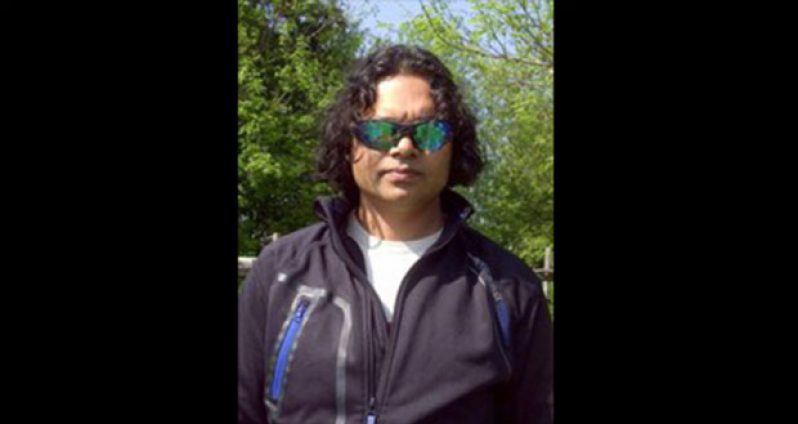The following is a statement issued by overseas-based journalist and author, Shaun Michael Samaroo detailing his involvement with the Rodney Commission of Inquiry, which he says entailed, inter alia, writing and publishing a book on the subject, and producing a documentary.
ERRONEOUS and misleading reports circulating in the media suggest that the Rodney Commission contracted myself, Shaun Michael Samaroo, to report in the State media on the Commission’s work, and that the Government of Guyana paid for this service. At no time and under no circumstance did the Government of Guyana contract my professional media services, or paid me, to report in the State media. I was never contracted as a State media reporter.
Rather, the Government of Guyana contracted my services to write and publish a book on the Rodney Commission’s findings, to produce a documentary on the content of the Commissioner’s report, to archive online the voluminous amount of documents and testimonies the Commission gathered, and to publicize internationally the findings of the Commission’s hearings.
I hereby release the terms of the contract between myself and the Office of the President of the Government of Guyana, regarding the Rodney Commission. I was contracted for a specific purpose, and it had nothing to do with reporting in the State media.
In fact, I contributed several reports to the Guyana Chronicle on the work of the Commission pro bono, never once receiving any payment for that work. I also contributed dozens of columns to the Guyana Chronicle without compensation of any sort. I did this because I was concerned at the sorry state of Guyana’s State media, and wanted to play a role in lifting the standard of Journalism, and to contribute my writing to the national stage.
The contract between myself and the Office of the President regarding my role at the Rodney Commission had absolutely nothing to do with the State media. Rather, listed here are the terms of that contract. This work is to be accomplished at the completion of the Commission’s work, and my role during the Commission’s hearings is to gather all relevant information for the execution of my contractual service.
Nowhere in the contract document is the State media ever mentioned.
Listed here are the terms of the contract:
1. Design and build a global social media platform that generates ongoing professional coverage of the Rodney Commission, in multimedia format – print, video, audio, and electronic; this includes engaging discussions online;
2. Write news reports, stories, features and multimedia scripts around daily happenings at the Commission;
3. Coordinate national and international media organs in full local and global coverage of the Commission’s findings, and testimonies;
4. After the Commission would have completed its work, write and publish a book on the Commission’s work, on behalf of the Government of Guyana;
5. Write the script for, and produce, a Video Documentary on DVD, of the Commission’s work on behalf of the Government of Guyana, at the completion of the Commission’s work;
6. Create an online forum where the full findings, testimonies and reports of the Commission can be archived and available for global consumption;
7. Network with global organizations, academic institutions and relevant interests to popularize the findings of the Commission.
Much of this work is to be done after the completion of the Commission’s final report, and it is my full intention to fulfil this obligation.
The Government of Guyana failed to fulfil aspects of the Contract, including outstanding payment. The G o G never provided internet access nor office space, as was stipulated in the contract. However, I overlooked such shortcomings, and proceeded to do my best to enhance the work of the Rodney Commission.
My services were contracted mainly to write and publish a book on the Commission’s findings, write a script and produce a documentary on the Commission’s findings, and ensure that the full records and documents are made public through the Commission’s work being archived online for posterity.
I sincerely believe that the work of the Rodney Commission fulfils a historic wrong against our nation’s socio-political being, and I reject any notion that the Commission performed with any partiality towards the political players in our history. Despite criticisms against the Government of the day during the time Dr Walter Rodney met his sad demise, I am fully satisfied that the Commissioners are impartial, professional and act with immense integrity and character.
It has been a joy and a great privilege for me to partake in this historic process of righting our gravest national historic political wrong, in seeing closure to the cold case of the demise of Dr Rodney.
I harbour deep respect and admiration for all the actors at the Commission, including State Counsel and Mr Basil Williams, and the Commissioners and the many souls who gave testimony and provided documents.
The participation and laudable contribution of each of these will find a place in the book and documentary, and in the online archive.
I have publicly commended former President, Mr Donald Ramotar, for his courage, strength, character and integrity of vision to convene the Commission, and to see it achieve its goal of ventilating the socio-political causes of Dr Rodney’s demise. It is my hope that the findings of the Commission would teach us historic lessons we would never want to repeat, and that the Commission would actually play a leading role in healing the political divides that bedevil us, in bringing the political parties and political leaders together in collaboration, cooperation and authentic conciliation.












